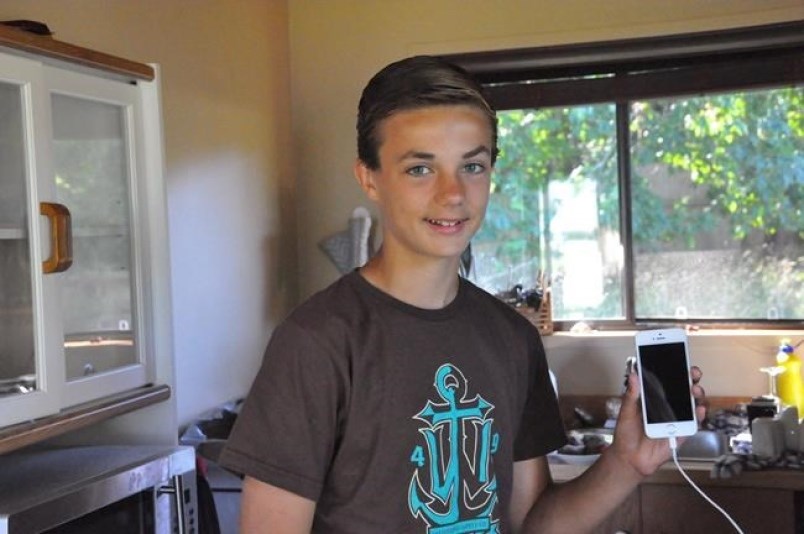The B.C. Coroners Service will hold an inquest into the illicit drug overdose death of Oak Bay teen Elliot Cleveland Eurchuk beginning June 17.
The inquest has been called to review the circumstances of Eurchuk’s death and to explore opportunities for a jury to make recommendations that could prevent deaths in similar circumstances, said the coroners service this morning.
“I see it as being a very painful process for me and Rachel and my family but I see it as an opportunity for positive change,” said father Brock Eurchuk.
Presiding coroner Michael Egilson, chair of the Child Death Review Unit for Office of the Chief Coroner, and a five-person jury will hear evidence from witnesses under oath to determine the facts surrounding the death.
The inquest is scheduled for at least a week but could go two weeks, said coroners service spokesman Andy Watson.
The inquest is a fact-finding, not fault-finding probe.
Elliot, 16, was found in his bedroom on April 20, 2018, having died from a combination of cocaine, fentanyl, heroin and methamphetamine in his system.
His parents, Rachel Staples and Brock Eurchuk, have been lobbying for an inquest ever since.
Elliot’s parents say painkillers prescribed before and after surgery for sports-related injuries led to an addiction that he fed with street drugs.
“It’s been 340 days since Elliot died and it’s still very difficult,” said Brock Eurchuk, emotionally overwhelmed.
The Oak Bay teen’s death occurred in the midst of an ongoing opioid epidemic. The B.C. Coroners Service says 1,489 people in B.C. died of illicit-drug overdoses last year, about the same number of deaths seen in 2017. Fentanyl was detected in 86 per cent of deaths in 2018.
Elliot’s parents have argued that a probe into the systems they say failed Elliot — the health system, addictions and mental health, the education system and justice system — is needed to prevent future deaths of this kind.
The parents say they asked physicians to use alternatives to opioids on their son post-surgery.
Later, they say they asked physicians to give them access to their son's medical information, including lab test results to confirm he had begun taking street drugs.
The roadblocks were many, the parents say: Elliot was expelled from school rather than counselled for an addiction and later he was discharged from hospital despite having overdosed in his hospital bed days earlier.
When he was committed by his parents under the Mental Health Act in order to get him drug-addiction treatment, he was discharged without counselling or being admitted to a treatment bed, Staples said.
Victoria lawyer Michael Scherr of Pearlman Lindholm, who represents the family, has said the coroner’s office is best suited to preside over an investigation aimed at making recommendations to social workers, health-care practitioners, school administrators, peace officers and parents.
The couple have also been calling for a review and overhaul of the B.C. Infants Act, which says anyone under the age of 19 can consent to their own medical care if a health care provider agrees with the treatment and assesses the patient as competent to understand the risks and benefits.
This allowed Elliot to dictate his own prescribed drug regime and to bar his parents from seeing his medical record and test results.
“There’s not a day, not an hour that goes by that I don’t review the decisions I made, the road I took, question what if I had done this, or that,” said an emotional Brock Eurchuk, flying back to Victoria from Los Angeles with his two remaining sons today.
“Ultimately this failure is one that I will be living with the rest of my life,” said Brock Eurchuk.
He wonders if the sports associations, the school administration, the police, the health care providers, those overseeing the legal system, question themselves the same way.
“How can (they) not feel shame for what happened here,” said Brock.
The public inquest will start 9:30 a.m. at the University of Victoria’s Dispute Resolution Room, in the Fraser Building.
— Cindy E. Harnett, Times Colonist



